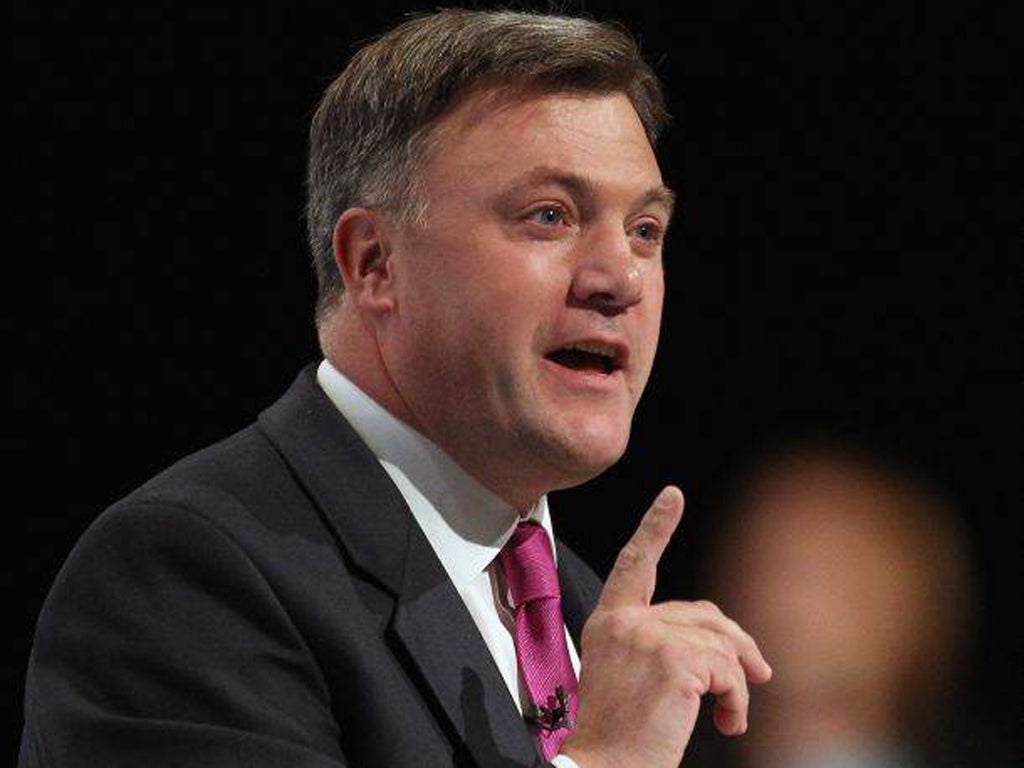Balls aims to redraw battle lines by wooing Lib Dems and Tories
Shadow Chancellor backs strikers – and accuses Cameron of provoking Wednesday's strike

Ed Balls last night fuelled the row over this week's mass strike when he said he had "huge sympathy" for those taking action, as he made an audacious attempt to press for a new coalition in British politics.
The Shadow Chancellor, in an interview with The Independent on Sunday, said it was a "tragedy" that the strike – by up to 2.6 million public sector workers – had not been avoided, but he blamed David Cameron and fellow ministers for engineering the confrontation.
Speaking before George Osborne's Autumn Statement, Mr Balls called for a redrawing of the battle lines in British politics with an alliance of Conservatives, Liberal Democrats and Labour against the coalition's austerity agenda.
With the Chancellor under pressure to veer from his Plan A when he takes to the Dispatch Box, Mr Balls claimed he could see a new coalition forming, from dissenting Tory MPs, through Lib Dem cabinet ministers and MPs to Labour calling for more radical steps to stimulate growth.
With the Autumn Statement on Tuesday, followed on Wednesday by the national walkout by 29 unions, the next few days are crucial for British politics and the economy.
Mr Osborne spent yesterday in his Downing Street flat putting the final touches to his statement, which is likely to reveal a curbing of price rises in rail fares and fuel duty and a programme of "credit easing" to make it easier for small businesses to borrow money. The measures are expected to be funded in part by an increase in the bank levy.
But any measures to help families at a time of severe economic hardship will come too late for the 2.6 million union members who will strike on Wednesday over cuts to pensions.
Mr Balls, who will face the Chancellor for a Budget-related statement in the Commons for the first time, said: "This isn't about trade union leaders – this is about dinner ladies and teaching assistants and people in local government who feel as though they've worked hard for 30 years and suddenly are being stung at a late stage in their career – predominantly low-paid women. I have huge sympathy with them.
"The unions still need to give some ground, but I think what the Government is trying to impose is both unfair and very risky.
"I don't think anybody wants a strike next Wednesday... But, despite the best efforts of civil servants and negotiators and maybe some ministers, it's pretty clear that, at the most senior level, the Government's been determined to have a confrontation."
Mr Balls seized on a report by this newspaper earlier this month that Mr Cameron was privately delighted the strike was going ahead.
"At no point did Labour ever sit around a table in government planning how to act in a way that might provoke strikes. "I think it's ridiculous we are having this strike. I think it absolutely could be avoided and I think it's a tragedy it hasn't been."
The Shadow Chancellor's sympathy for strikers appears to go beyond the words of his leader, Ed Miliband, who yesterday accused ministers of "ramping up the rhetoric".
Damian Green, the immigration minister, suggested that troops could be drafted in to cover ports and airports when immigration officers join the mass walkout, insisting that Britain must remain "open for business".
Danny Alexander, the Chief Secretary to the Treasury, provoked union anger by warning that a compromise offer on public sector pensions could be withdrawn if the strike goes ahead. Mark Serwotka, general secretary of the PCS union whose members are joining the industrial action, said: "Isn't that just classic bullying? Take the offer – and if you don't, we'll take it off the table."
In his interview, Mr Balls drew historical parallels with the period after the 1929 Wall Street Crash, when the Labour Prime Minister Ramsay MacDonald went into a national government with the Conservatives and imposed "excessive austerity" that led to a depression.
He said: "In 1931, a Labour Prime Minister tragically went into a coalition to drive austerity which led to higher unemployment and didn't work to get the deficit down. It was a very bleak period. At that time the Labour Party in Parliament and the Liberals in Parliament argued for a fairer, a saner, better alternative.
"The only coalition which actually could sort out our economic problems at the moment is a coalition between the Labour Party and the Liberal Democrats, because we are the only ones who understand together what needs to be done.
Join our commenting forum
Join thought-provoking conversations, follow other Independent readers and see their replies
Comments
Bookmark popover
Removed from bookmarks